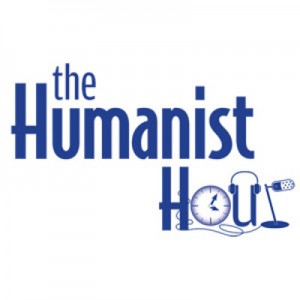Meet the Podcast Producer: Stephanie Zvan

We’re pleased to welcome to the American Humanist Association the new producer of the Humanist Hour podcast, Stephanie Zvan!
TheHumanist.com: What is your educational and work background?
I started college as a physics major. I was lucky enough to have a multi-year physics program available to me in high school, and I loved it. Eventually, though, I had to start thinking about what I wanted to do with that physics degree. That was when I realized I didn’t want to work in physics. What I’d thought was a love of physics was really a love of problem-solving and not of the subject itself.
That was when I switched to psychology. I made a good choice there in that it turns out I really do love psychology. However, it turns out that counseling is a poor career choice for an introvert, or at least for this introvert. Still, I came out of college with a good background in math, scientific methodology, and the real complexity of certain problems.
Once I was out of college, I took on a variety of corporate roles, but I kept ending up in analyst positions. Being an analyst is a great way to learn the nitty gritty of an industry. I’ll talk your ear off about pensions at the least provocation. However, since a large part of that job was documenting the decline of US private-sector pension plans, don’t expect it to be a very cheerful conversation.
TheHumanist.com: What interested you most about working as the producer for the American Humanist Association’s Humanist Hour podcast?
I really love interviewing people. I’ve been doing it for the Minnesota Atheists’ Atheists Talk radio since 2009. I don’t think I’ll ever get tired of it. I love helping people get their story out there and share their passions with other people. It’s all the more fun when we’re dealing with a group like humanists, who face bigger barriers to being heard.
If I had to choose just one thing that made me most excited about coming on board the Humanist Hour podcast now, it would be the opportunity to implement the American Humanist Association’s recent focus on social justice in another medium. I’ve been very vocal about asking organizations to move this direction. The very least I can do is help.
TheHumanist.com: Did you grow up in a particular religious tradition? What was the experience like?
I was born to parents who’d been raised strict Methodists and had had quite enough of that, thank you. They decided to raise their children without religion and let us all choose one for ourselves when we grew up. To the best of my knowledge, none of us ever felt compelled to choose one. I inhaled mythology from across the world as a kid, so none of it ever stood out as being more true than any of the rest. If someone had offered me passage to Narnia, that might have been different (though C.S. Lewis’s last book of the series, The Last Battle, was strange and confusing since I didn’t have the Christian background it relies on).
Humanism was everywhere in my upbringing, but on the other hand, it wasn’t called that. It was civil rights, and feminism, and the push for early childhood education, and skeptical anthropology. It was Free to Be…You and Me and Sesame Street. It was 1960s political folk music. It was the Boston Women’s Health Book Collective with Our Bodies, Ourselves and a host of other small groups working to make the world better and less mysterious. When it comes down to it, it was really all the things the “Moral Majority” did its best to demonize and erase through the 1980s. I never liked the Moral Majority much, so I stayed a humanist.
TheHumanist.com: Have you read any good books lately? What’s your favorite book?
I very much enjoyed Jennifer Michael Hecht’s Stay: A History of Suicide and the Philosophies Against It. The church history that motivated Christianity’s anti-suicide stance was fascinating, and the counter-arguments are good and dense and chewy. I’m not 100 percent sure I agree with where Hecht ends up on the topic. I have reservations about the kind of emotional pain we ask people to bear, but I haven’t managed to formulate those objections yet. I’ll be mulling it over for a long time.
My favorite book, characteristically, is a fantasy novel that has no magic in it. Instead, Ellen Kushner’s Swordspoint has politics, intrigue, bad decisions, women who leave indelible marks wherever they go, and self-destructive characters who manage to be better for each other than they ever could be for themselves. I would compare it to another book, but part of the reason it’s my favorite is that I can’t.
TheHumanist.com: If you could have dinner with any three people (living or dead), who would they be and why?
I would love to throw a dinner party with Louisa May Alcott, Elizabeth Siddal, and L.M. Montgomery. All three were ambitious, talented women working under familial obligations and societal restrictions that kept them from being able to fully pursue their goals. I want to have a dreamers’ dinner and find out what they would have done under circumstances that allowed them to thrive.
